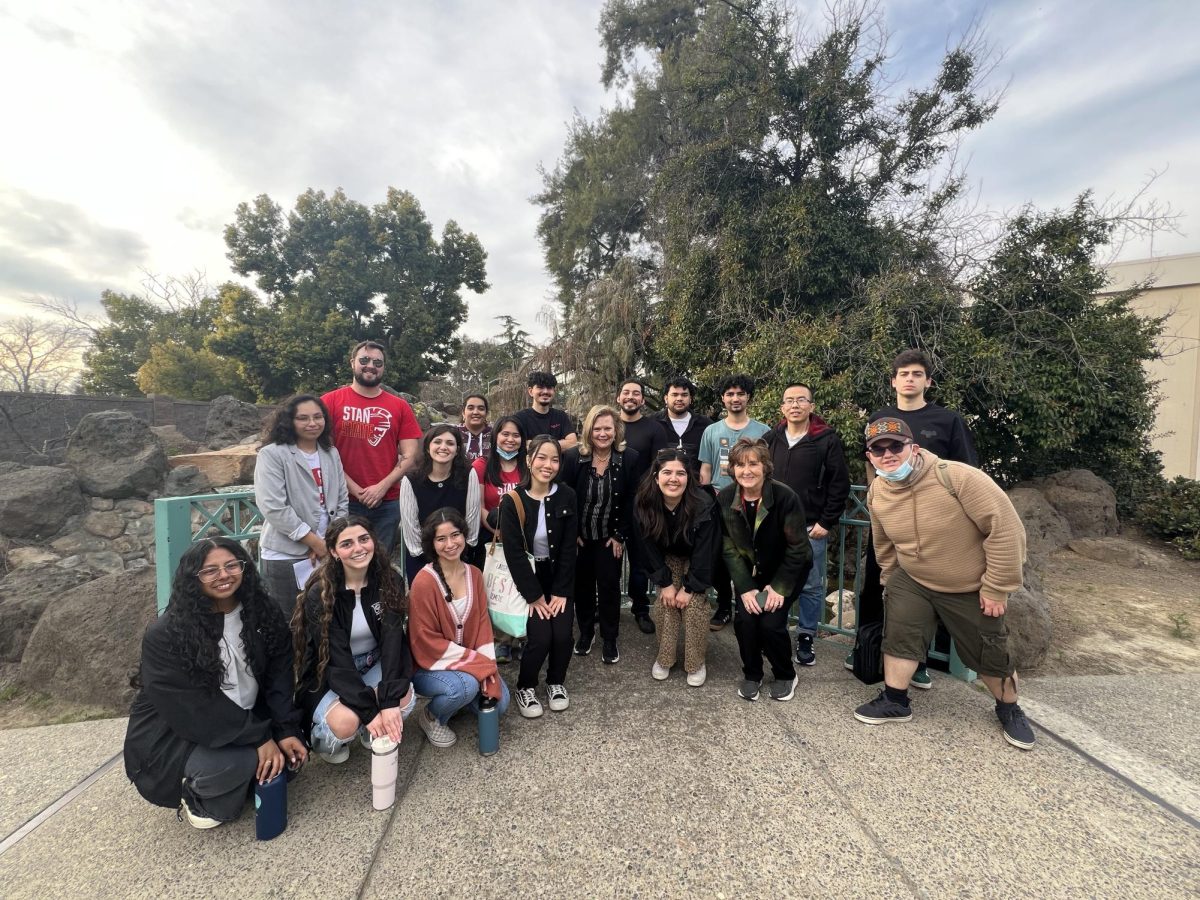Coheed and Cambria’s new release, The Afterman: Descension, wraps up the arc that started in the first part of the double album, Ascension, and tells of the consequences of Sirius Amory’s 547-day journey into the Keywork. (You can read my initial impressions of Ascension in last year’s October 18 issue, if you’re a weirdo who keeps old newspapers around.)
Descension, at its most basic level, can be split into two distinct parts: before and after “Gravity’s Union.” This mid-album track amounts to a climax for the tension between Sirius and his wife Meri.
The first group of songs follows Sirius’s escape from the Keywork and his unrest at the state of his personal life back home, where he’d been thought dead for over a year. In the opening, nigh-hopeless track, “Pretelethal,” Sirius is devastated physically and spiritually.
“How did we get so lost?” singer-songwriter Claudio Sanchez asks in a fragile falsetto.
“Pretelethal” blends into the last Key Entity Extraction track, “Sentry the Defiant.” The entities are different souls who possess Sirius throughout both Afterman albums. Their past lives serve as smaller frame stories within the narrative, sticking out musically and tonally.
Sentry’s song strongly validates the band’s new rhythm section comprised of returning drummer Josh Eppard and newcomer Zach Cooper on bass. Cooper’s style, while minimalist, adds a lot to the verse, and Eppard’s growth, since his 2006 departure, is evident in the atypical rhythms peppered throughout.
The next two tracks speed us through Sirius’s return to his home planet. “The Hard Sell” has Sanchez applying his best cynical wail over gritty, metal guitar riffs. “Number City,” which follows, actually flashes forward into a hospital room where Sirius is being operated on after an accident. This chronological dissonance is heightened by the horrific scene being presented through a funky pop song.
“Gravity’s Union” flashes back to the that accident, which results in the death of Meri. Sanchez amplifies a sense of shock and existential crisis with his lyrical repetition and unhinged laughter at the song’s end: “Caged / Locked in perpetual motion / Carving our wounds right open / You let the wrong one in.”
The album then becomes a serene meditation on love and death. “Away We Go” is a lighthearted remembrance of the couple’s early relationship. Meri lets go and passes on. The beeping of her electrocardiogram reading steadily declines as Sanchez and Travis Stever’s guitars begin constructing the nostalgic scene.
“Iron Fist” pulls the weight of Descension’s slower half. Sanchez is not known for subtlety, but he holds back while presenting a man reflecting on the neglect that tore his wife apart. Cooper further displays his minimalism here. The jazzy notes of his bass recede in and out, peeking above the rest of the band, but never overpowering them. This self-blame continues into “The Dark Side of Me,” where Sanchez betrays more emotion in his voicing of Sirius.
The album closes in what initially sounds like a Shakespearean comedy wedding. But “2’s My Favorite 1” is more like a reverse of the Orpheus-Persephone myth; Sirius returns to the afterlife, the Keywork, to find Meri’s soul and allow her to pass along peacefully. There’s a sense of contentedness to the track, and its sweet sadness is the closest any song gets in the double album to sounding happy.
Like Ascension, Descension tears through a lot of story quickly. Sanchez’s fantastical science-fiction universe might come off as plot-driven fluff, but each song is its own little character exploration, and it’s the desires and mistakes of Sirius that really drive the Afterman albums.
It helps that the music is good too.
Categories:
Descension album brings it home
By Nathan Duckworth
•
February 26, 2013
0
More to Discover






